Yesterday morning, my wife and I attended the official launch of Chek Jawa by Minister of National Development Mah Bow Tan. One of the last remaining vestiges of nature in Singapore, Chek Jawa Wetlands is located off the east coast of Pulau Ubin, which is a charming and rustic island getaway stuck in time.
Managed by the National Parks Board, this unique tidal treasure trove boasts of some of Singapore's richest ecosystem, and showcases a rich biodiversity that is almost unparalleled on our otherwise concrete jungle. Some may remember how Chek Jawa's survival was the result of active lobbying by nature lovers back in December 2001 which resulted in the government overturning its decision to transform it a military training area.
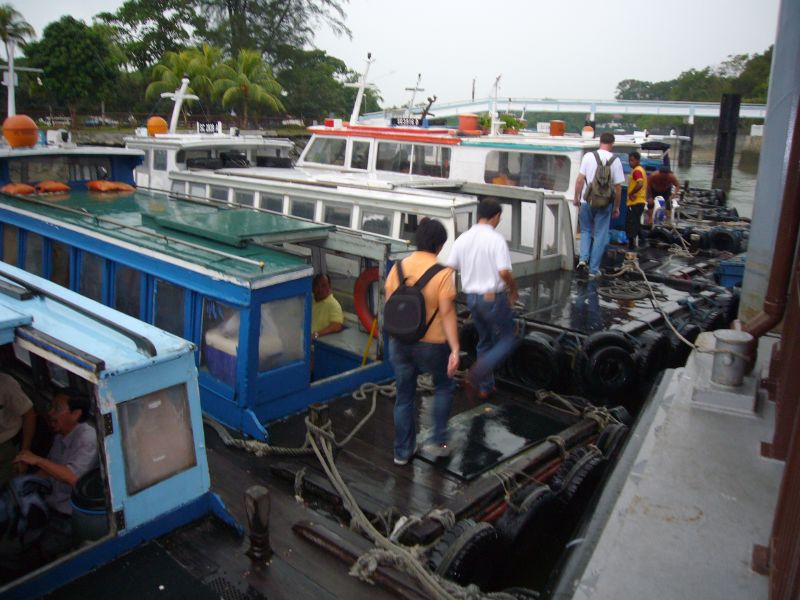
To get to Pulau Ubin, one needs to hop onto these bumboats from Changi Point Ferry Terminal. They are in operation from 6 a.m. to 8 p.m. daily. Ticket prices are only $2 per pax with an additional $2 extra per bicycle.
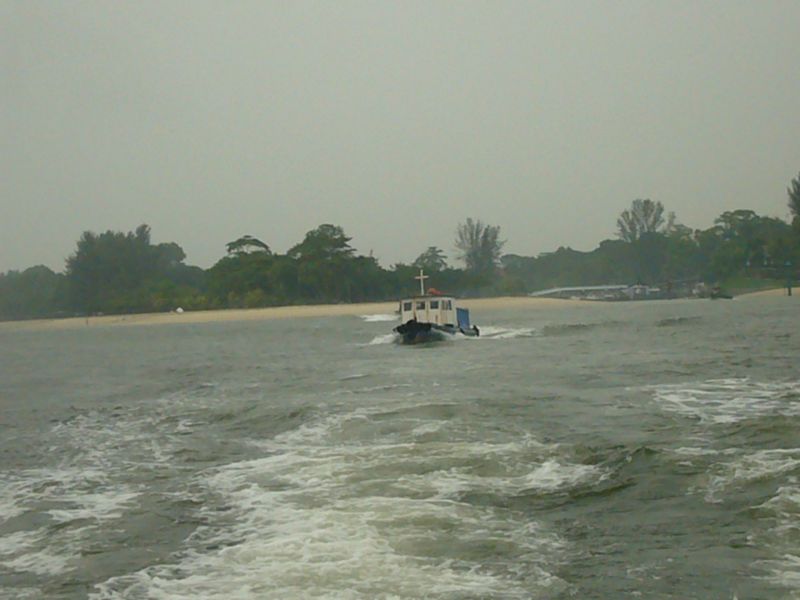
Our bumboat ride was pretty fun, although the weather was quite wet that morning.
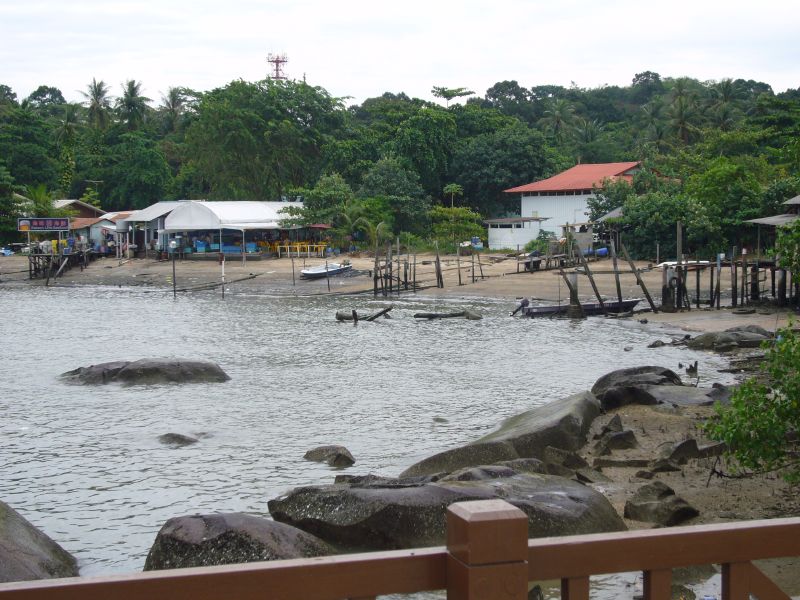
A coastal view of Pulau Ubin, taken from the jetty. Kelongs and seafood restaurants dot the landscape.
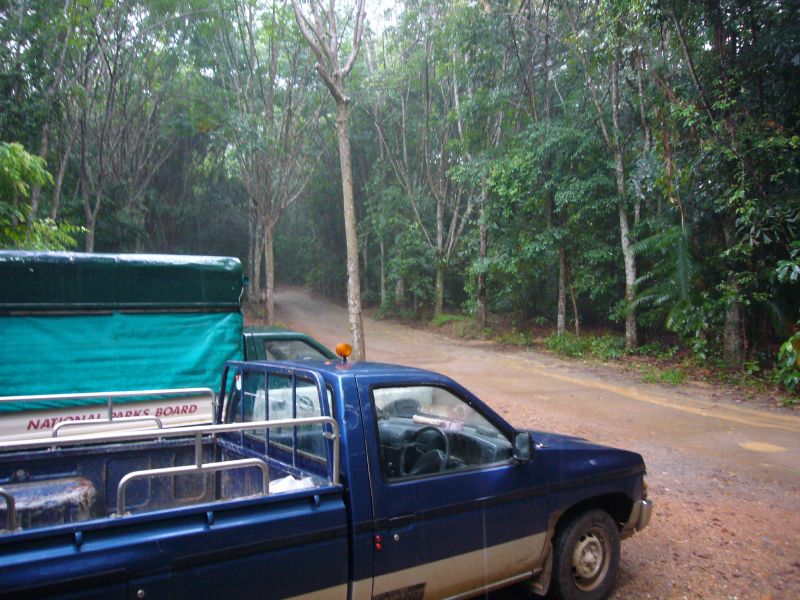
Our journey on an NParks van took us along windy forested roads like this.
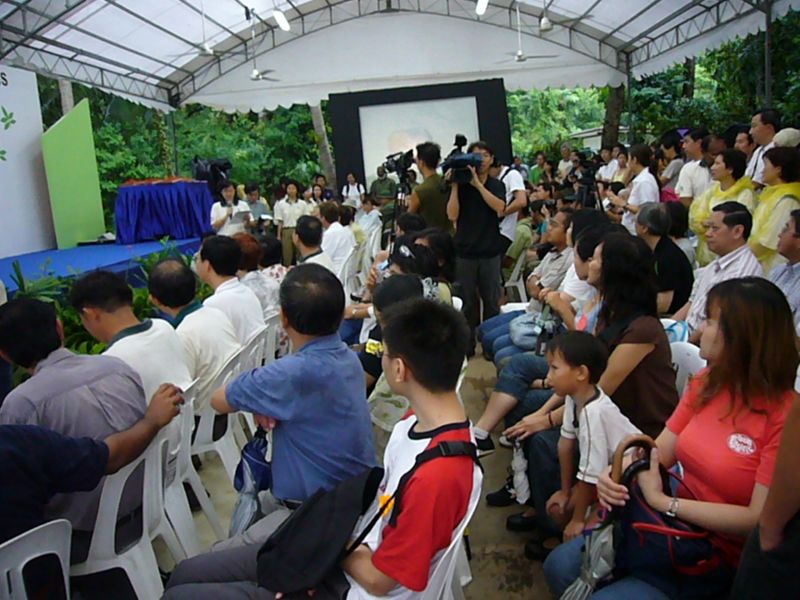
Hordes of hungry nature lovers congregated to support the launch.
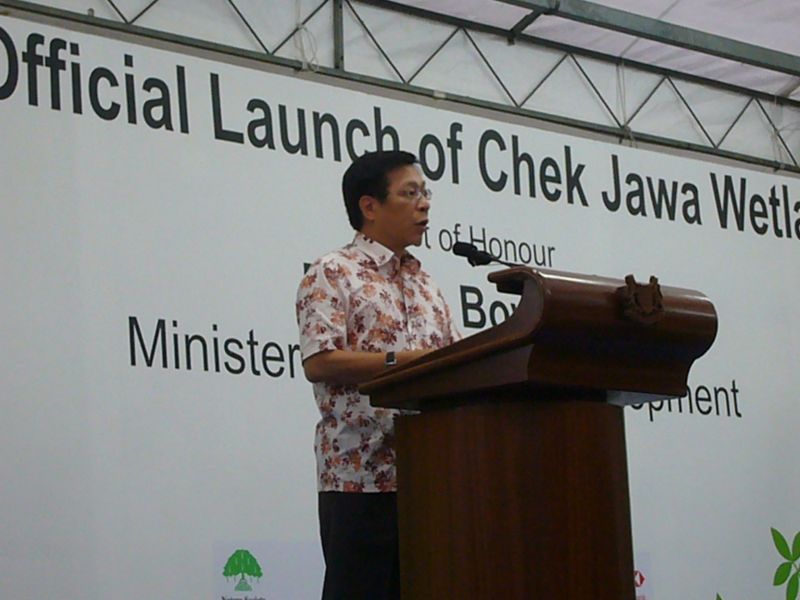
Guest Of Honour Minister Mah Bow Tan addressing the crowd and sharing the story of Chek Jawa.
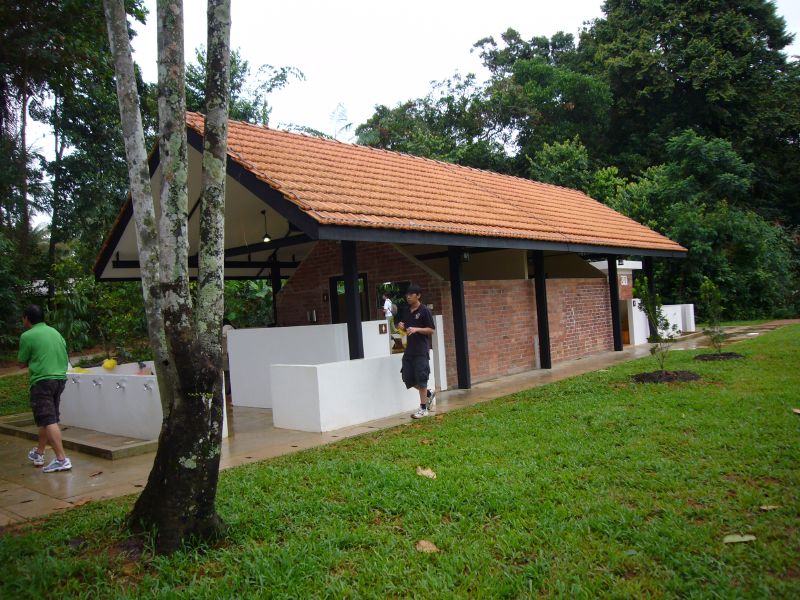
This outdoor toilet provides sweet relief for those in urgent need of answering err....nature's call.
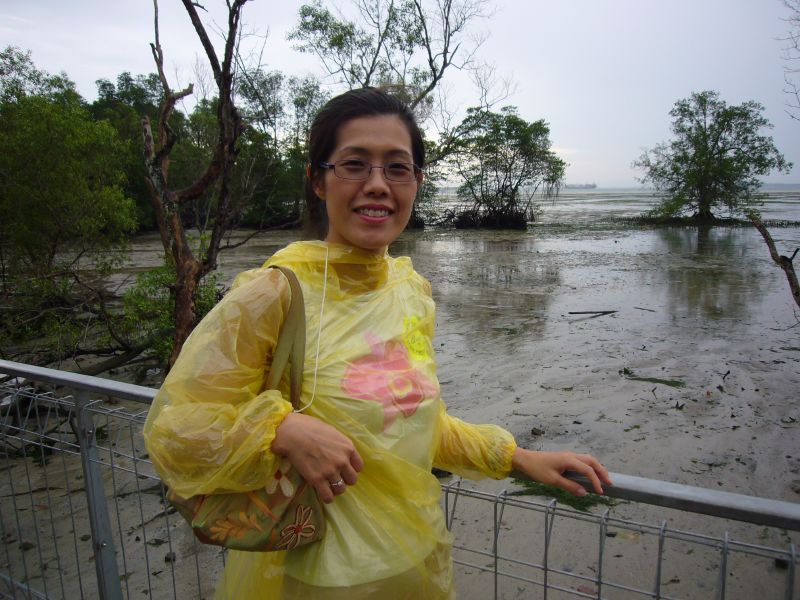
Tina in a yellow rain coat standing at the newly constructed 500 metre boardwalk which takes one through the mangroves.
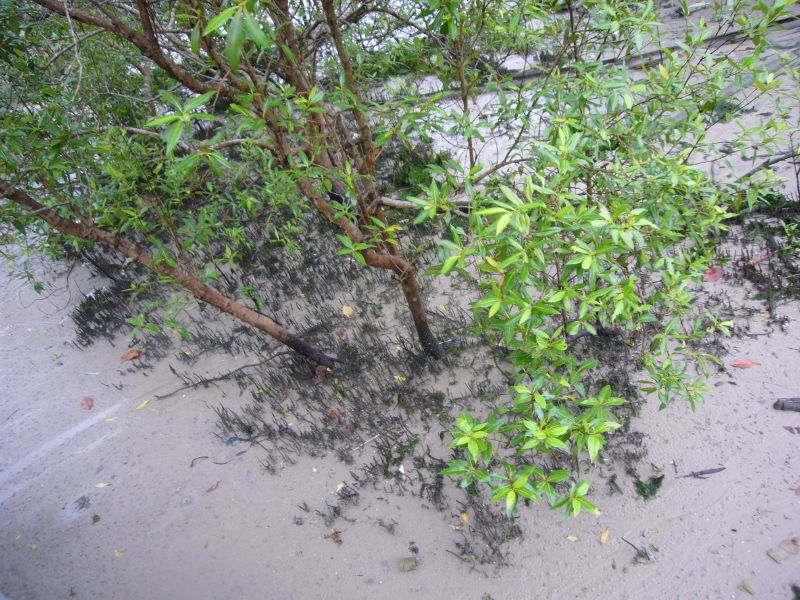
The pencil-shaped breathing roots (pneumatophores) of these Sonneratia plants helps it to manage the harsh inter-tidal conditions of being submerged and exposed throughout the day.
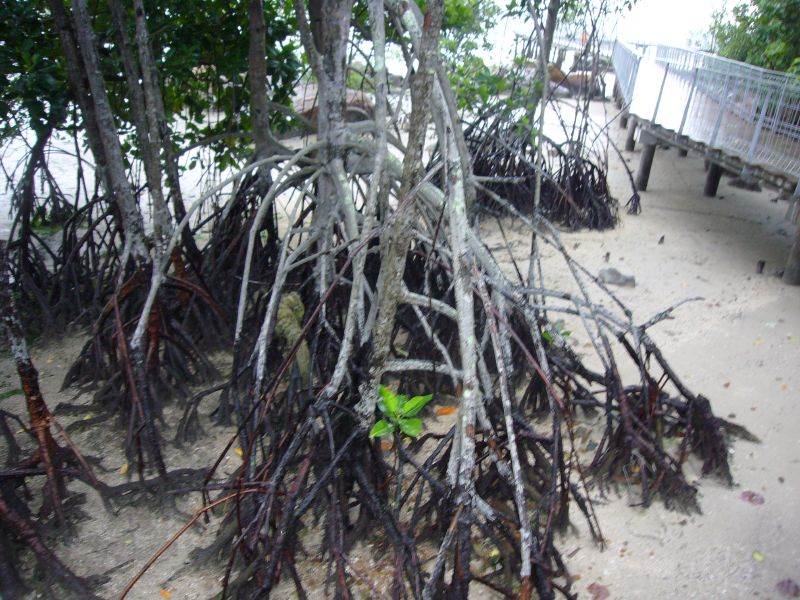
Bakau (Rhizophora) plants have stilt roots to help it breathe. Do you know that the tough and sturdy wood of this plant is used for charcoal and scaffolding?
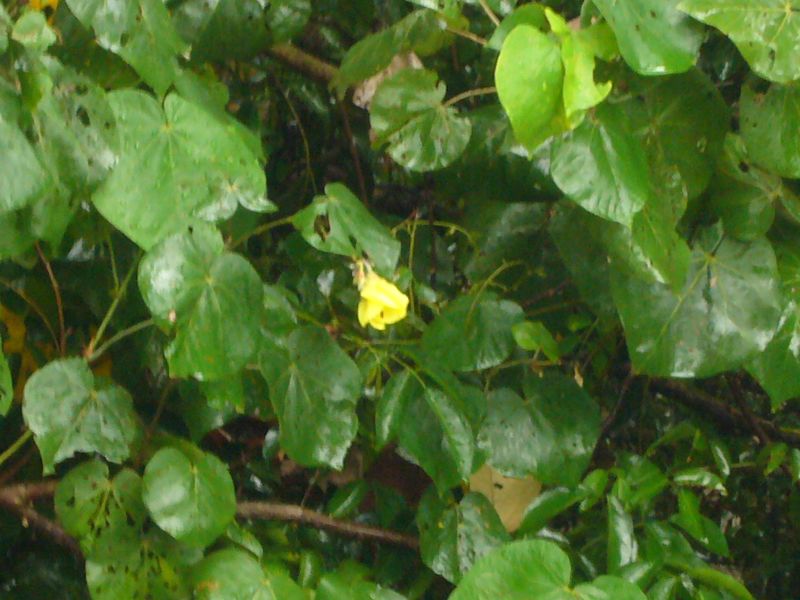
A yellow sea hibiscus flower which apparently turns red and dies within one day. What's interesting was that the plants were full of ants which drank nectar from its leaves while fending off beetles and other unwanted insect pests. A nice example of symbiosis.
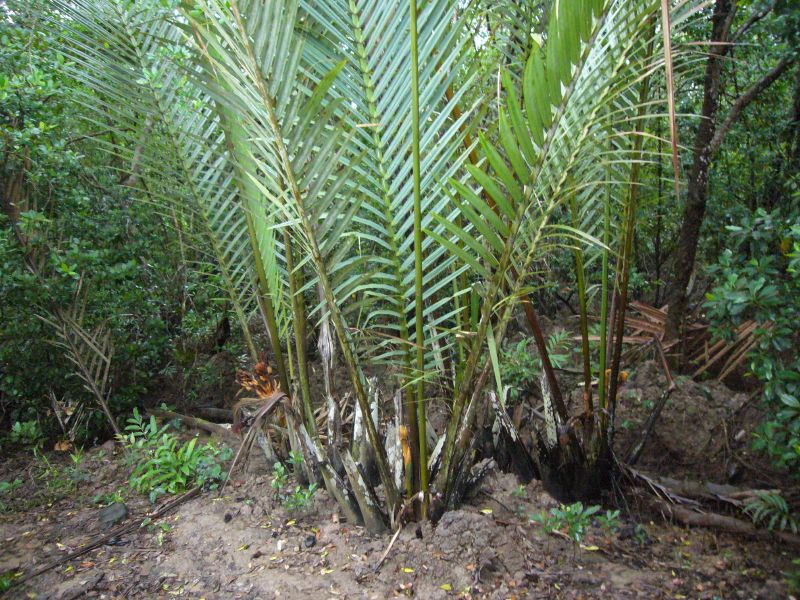
Can you guess what this palm species is famous for?
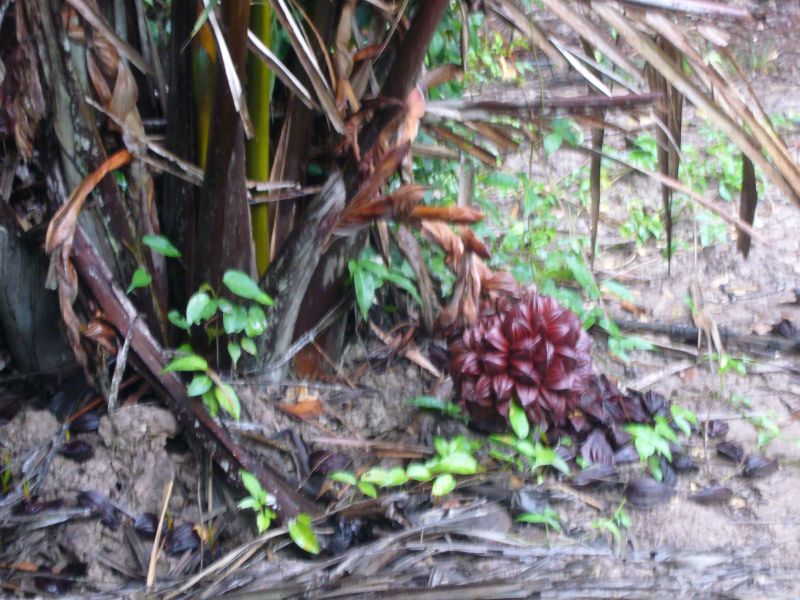
The answer - attap chee! These fuits of the Nipah palm need to be de-shelled and processed considerably before landing in your bowl of ice kachang.
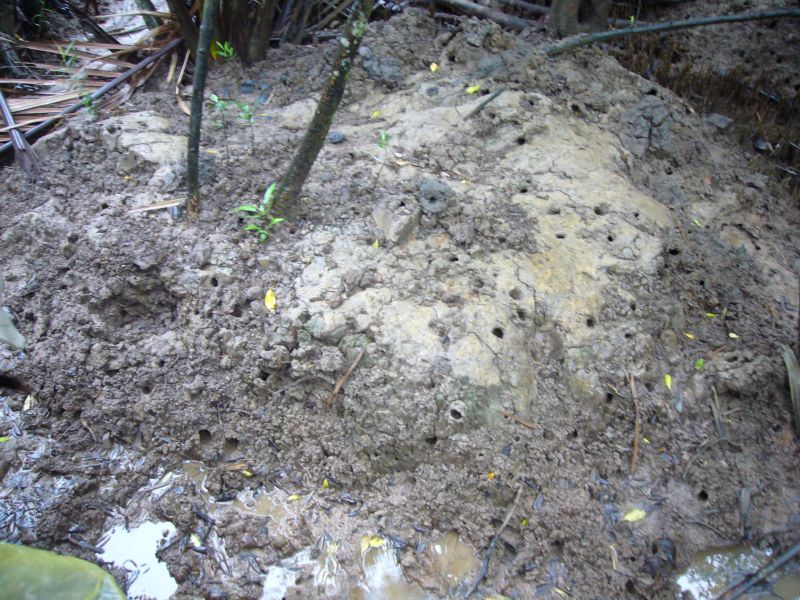
What does this look like? A pile of mud with holes?
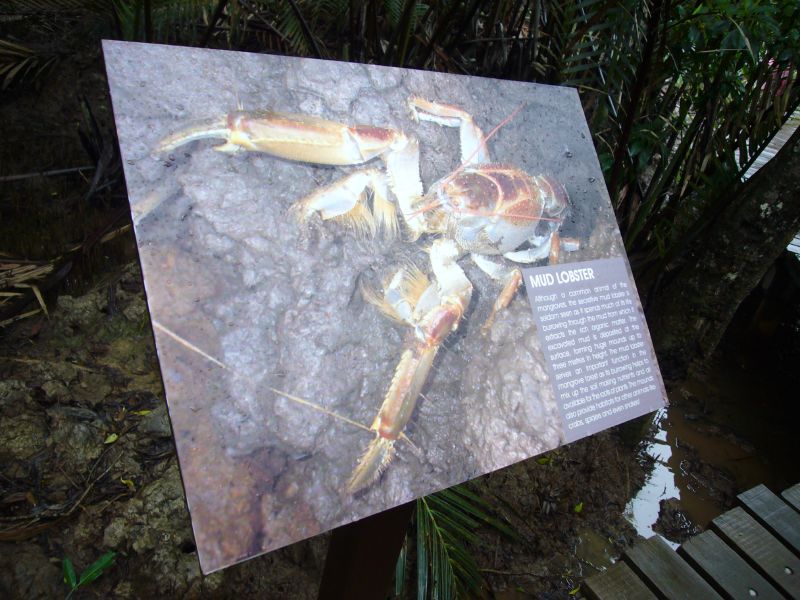
Well, the mound is the home of the mud lobster, a much loved denizen of the mudflats. Its burrowing behaviour helps to aerate the soil and make it more hospitable for plants and other organisms.
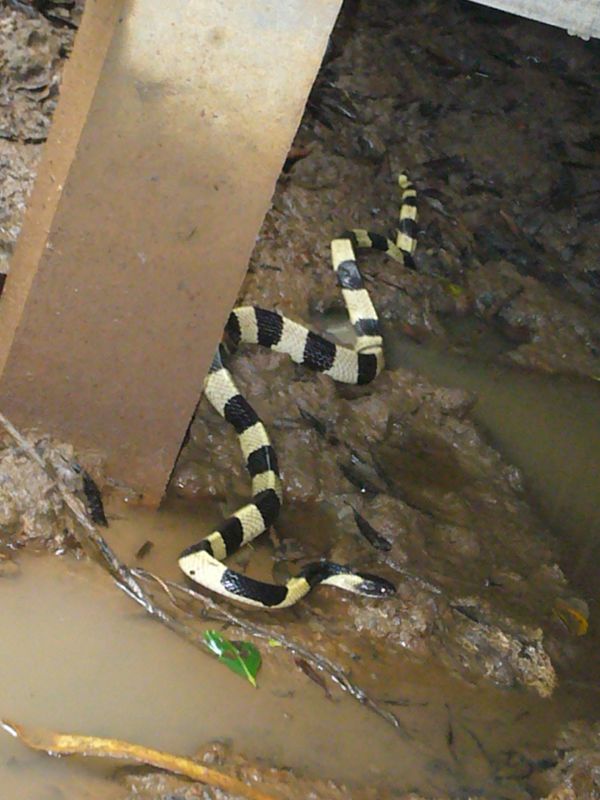
We were very fortunate to catch this highly venomous banded krait slithering through the muddy terrain. As I learnt from intrepid naturalist Siva, this is a very rare occurrence as its natural habitat is out in the sea.
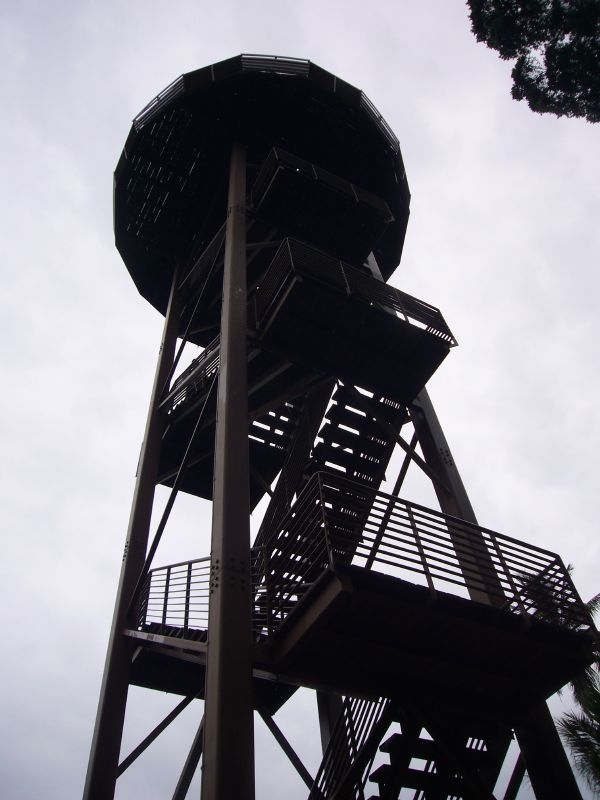
We next proceeded to climb up the 20-metre tall Jejawi Tower...
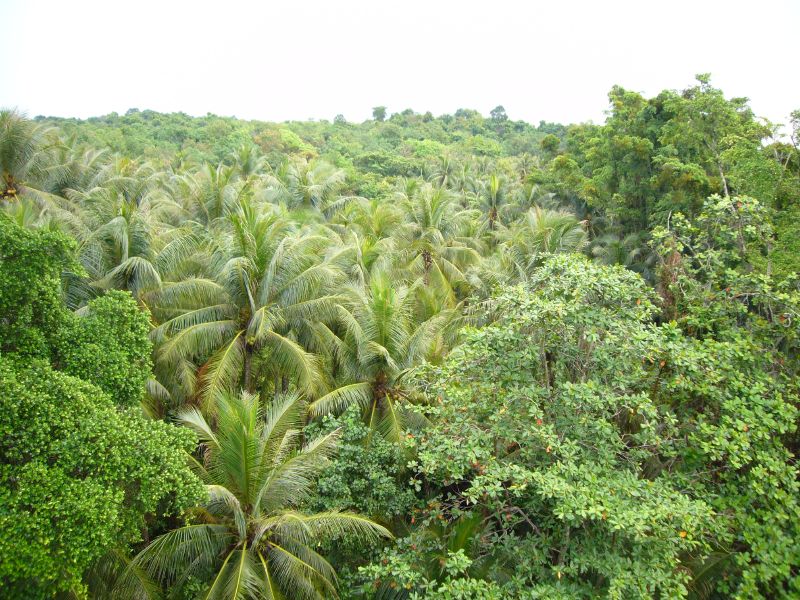
...and was rewarded with this panoramic view of Chek Jawa's forest.
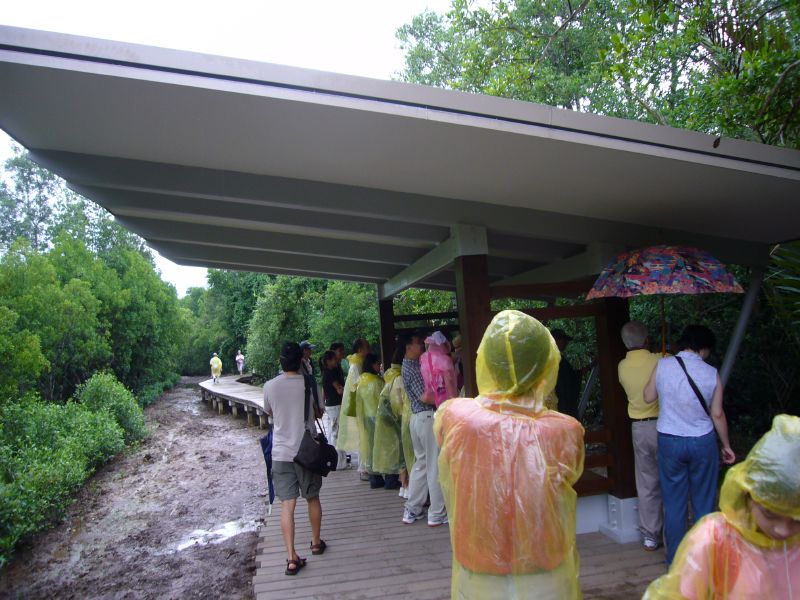
Shelters like this provide a nice respite from the rain or sweltering noon day heat.
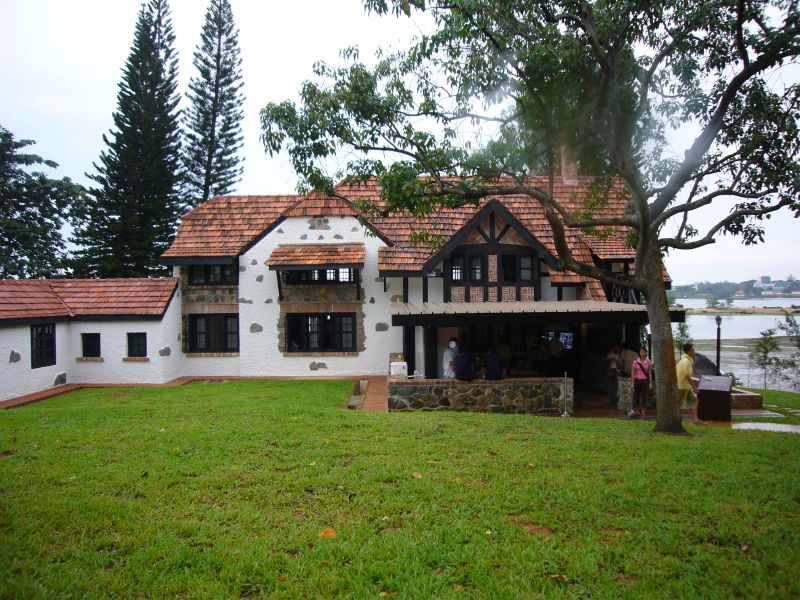
Back near the visitor centre, we visited House No.1. This Tudor-style cottage was built in the 1930s by then Chief Surveyor Langdon Williams as a holiday retreat. It is now a conserved building and an interpretative centre for Chek Jawa.
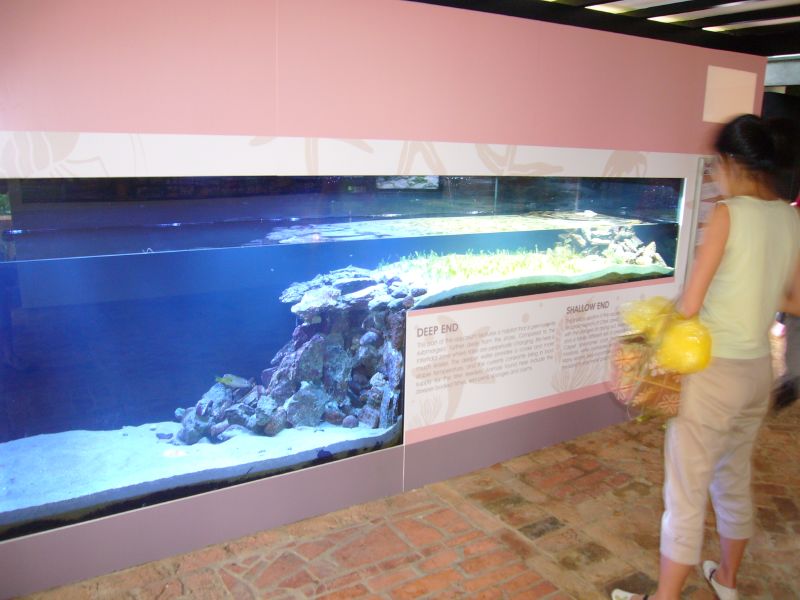
This aquarium shows the different marine aquatic organisms thriving in different depths of the littoral flats.
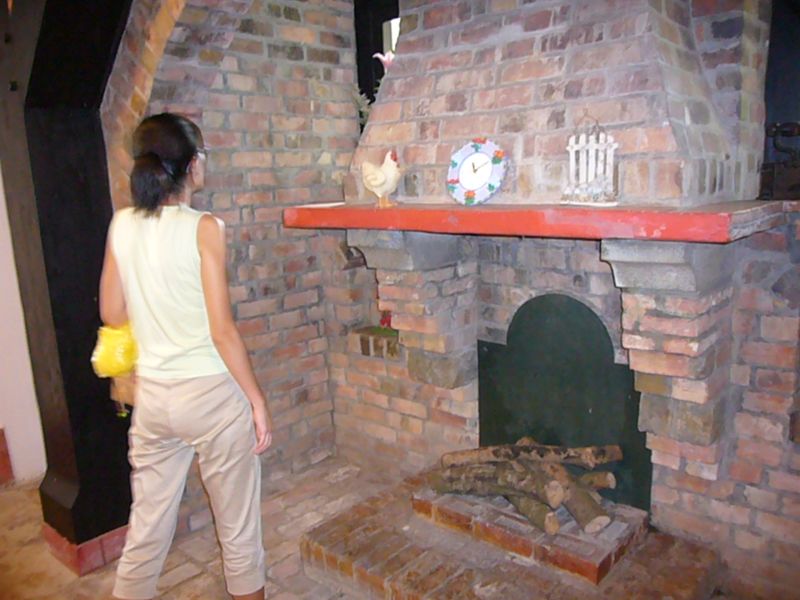
The only working fireplace in Singapore!
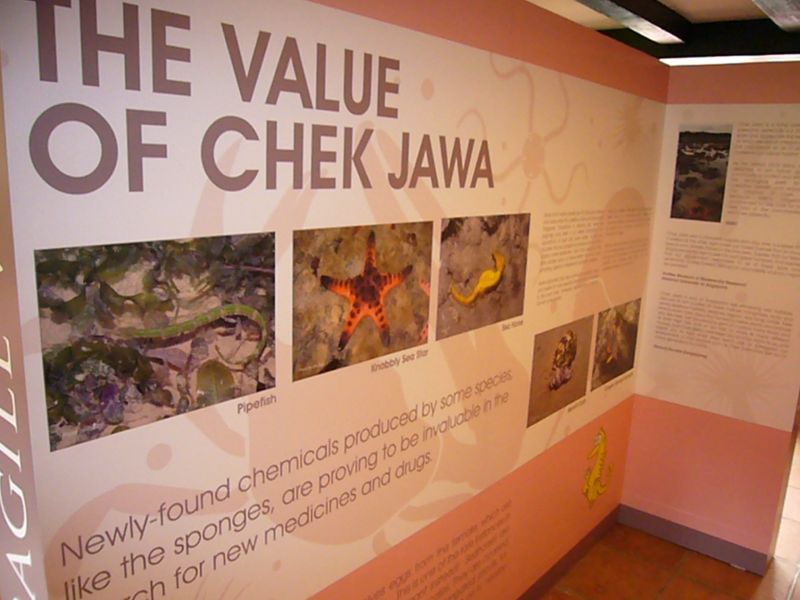
Panels like this educate us about the value of Chek Jawa to our island.
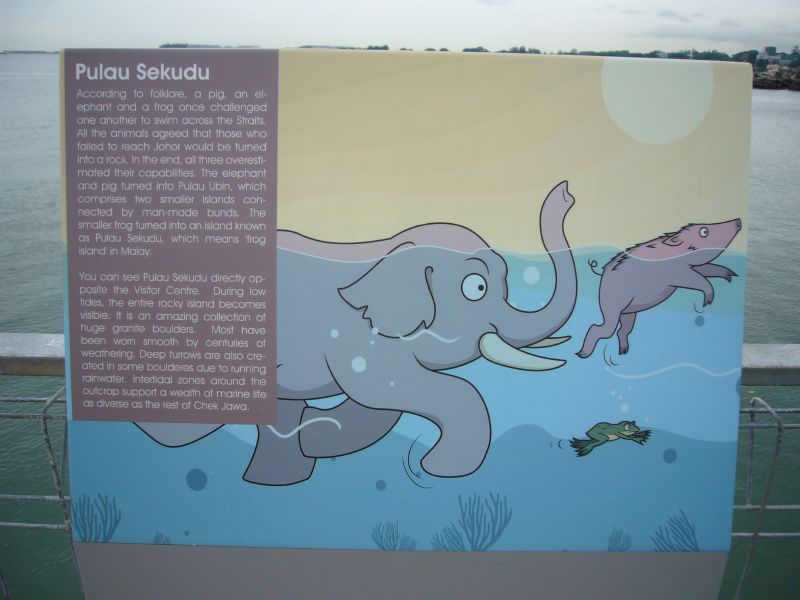
On the board walk behind House No.1, we spotted this amusing cartoon about Pulau Sekudu or frog island.
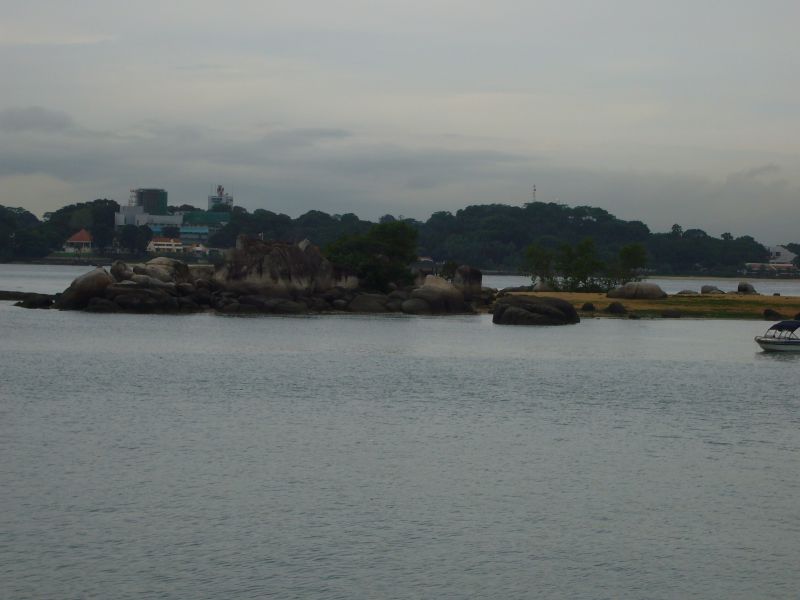
Here's a view of the island in question. Does it look amphibious to you?
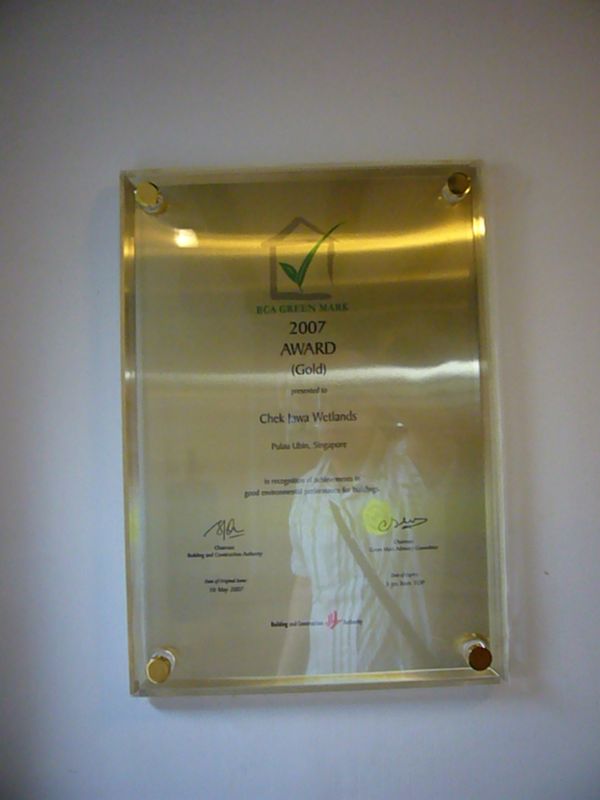
Naturally, Chek Jawa is awarded for its efforts in preserving our natural environment.
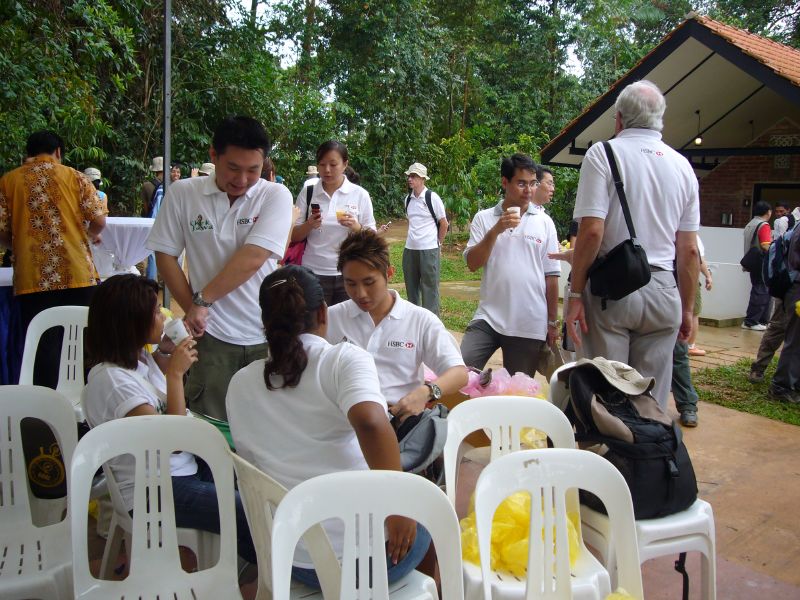
Finally, the true heroes of Chek Jawa are the many volunteers, activists and helpers who made it possible.
Update: Check out Siva's post here.Labels: Chek Jawa, cj070707, eco tourism, green day, lifestyle, living museum, natural heritage, Nature


























